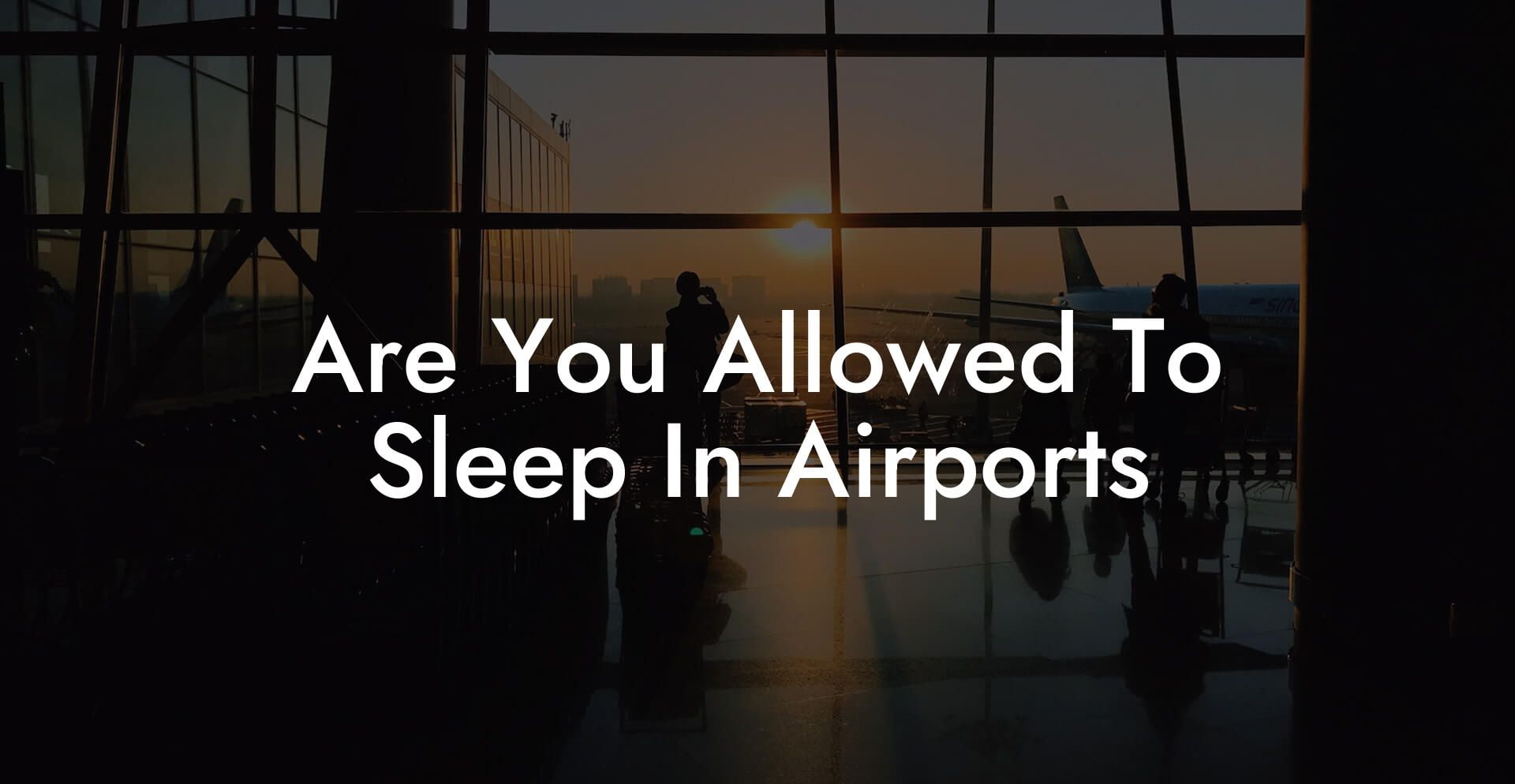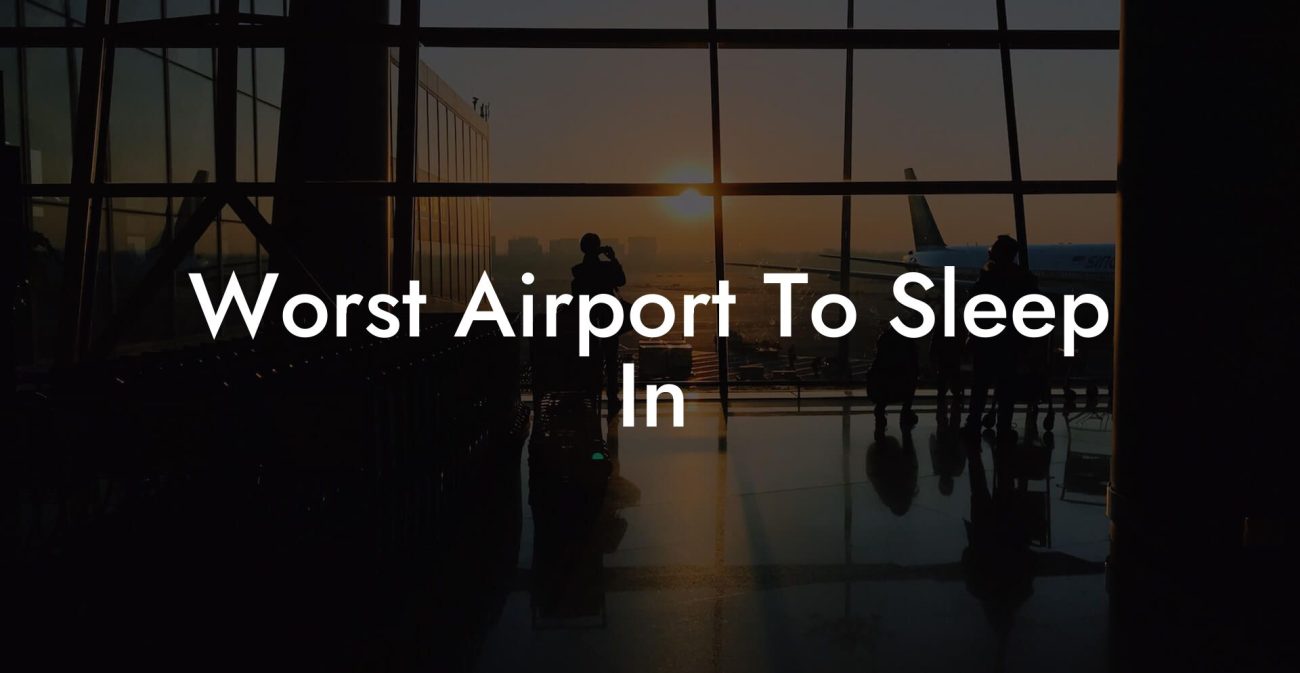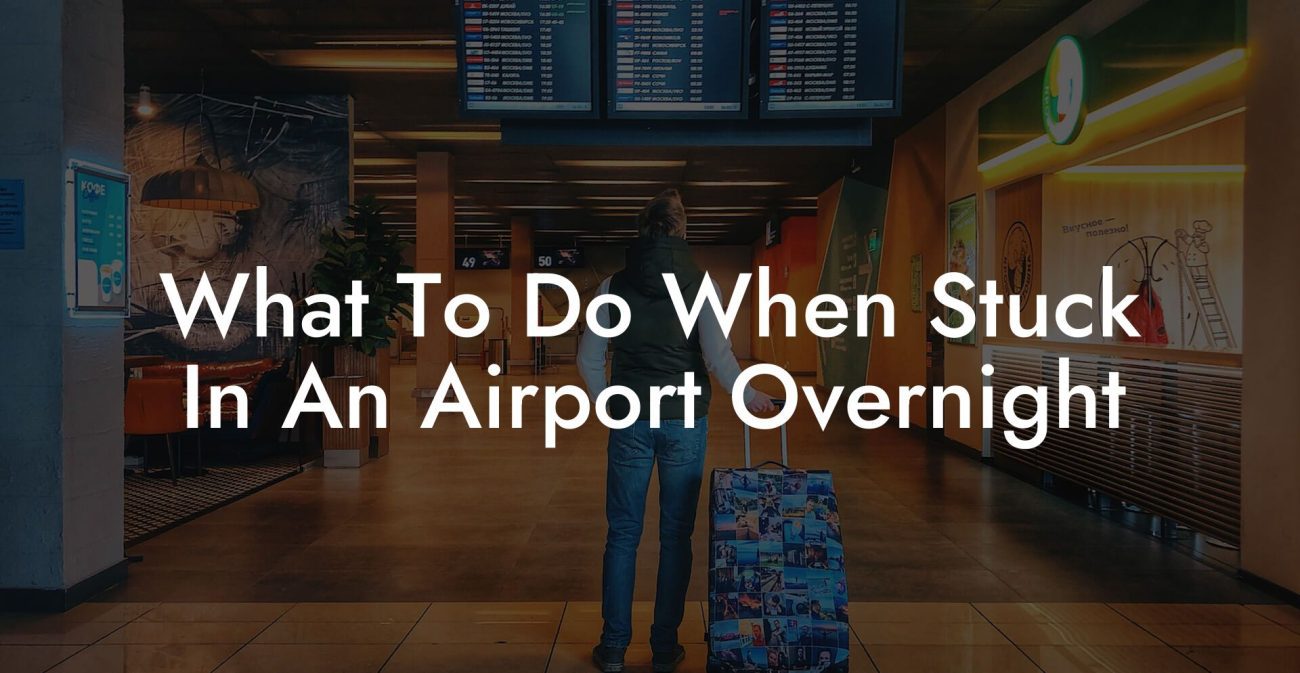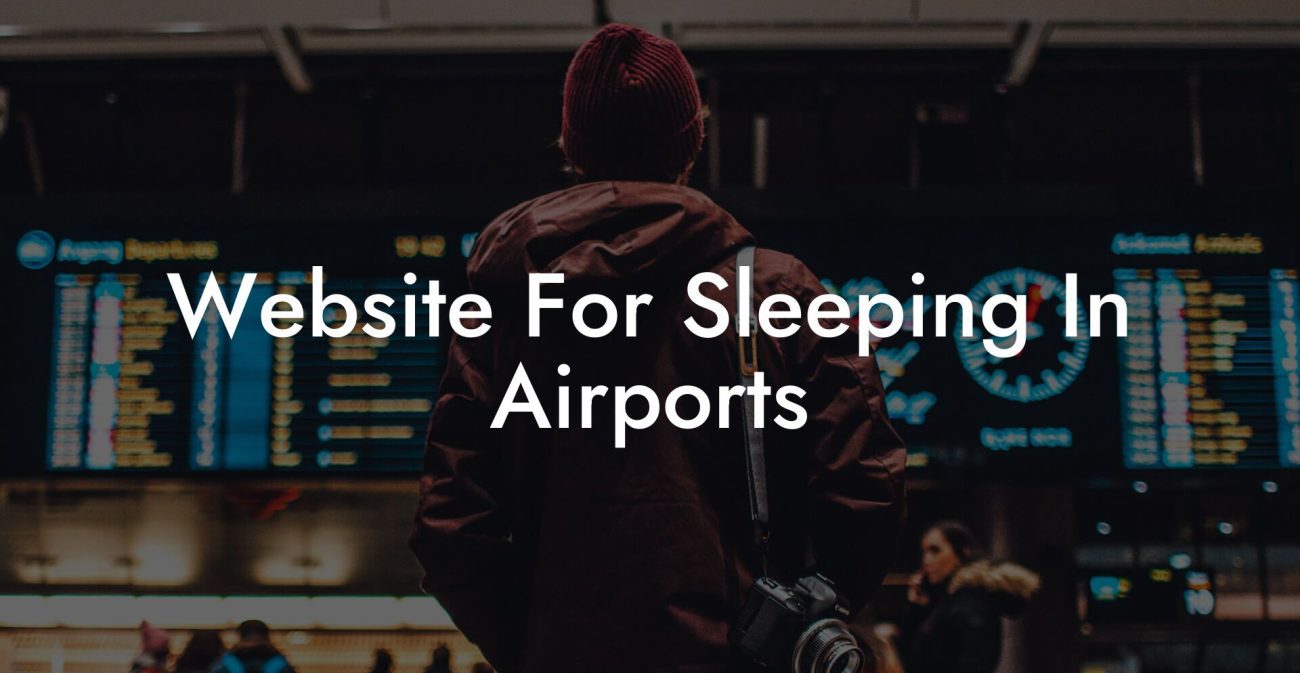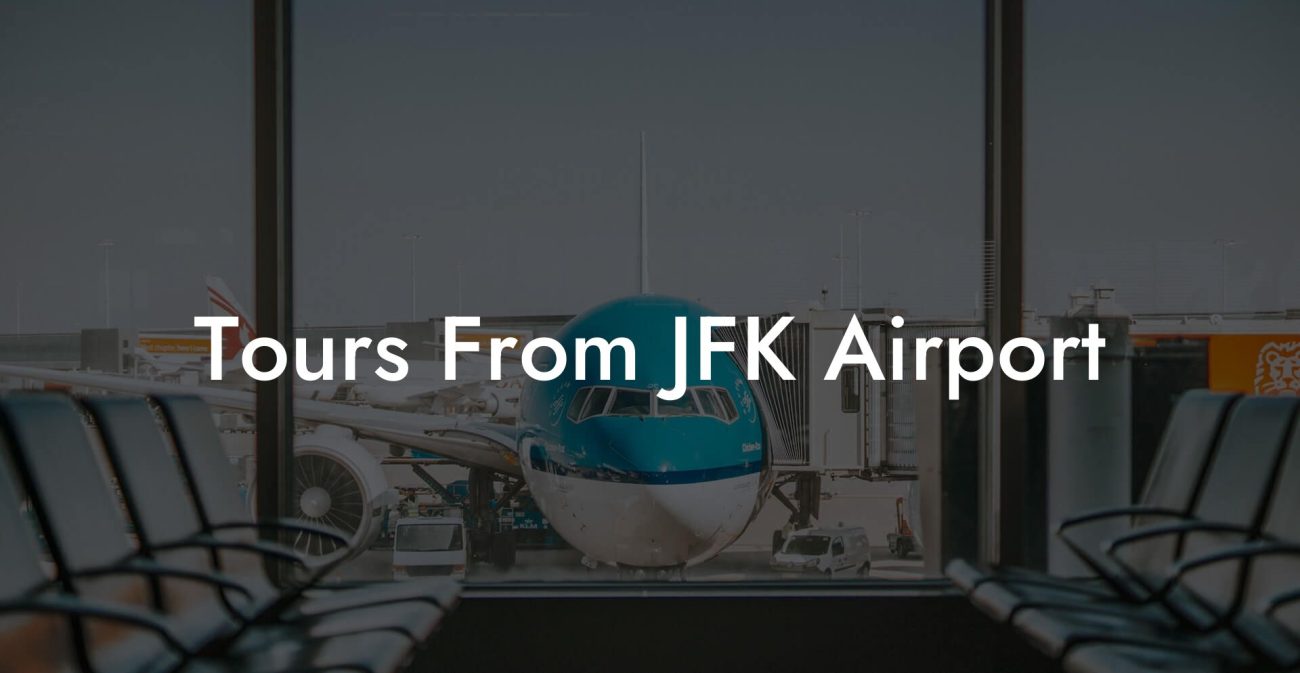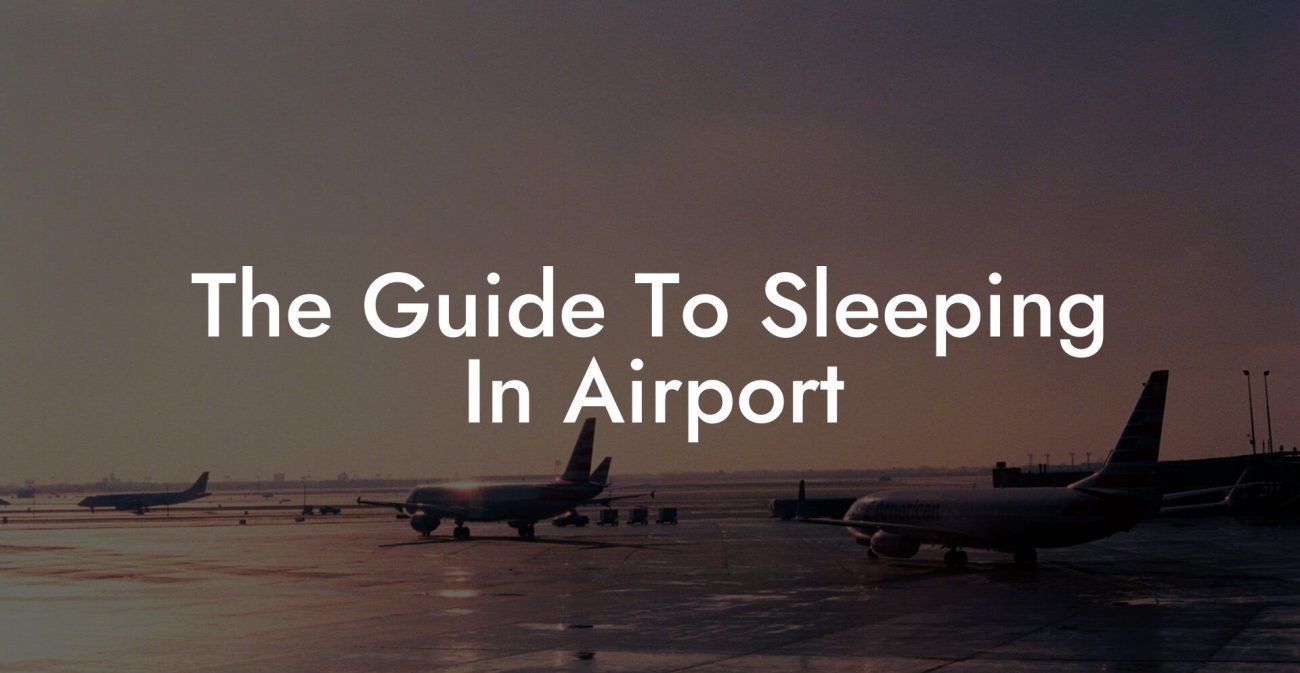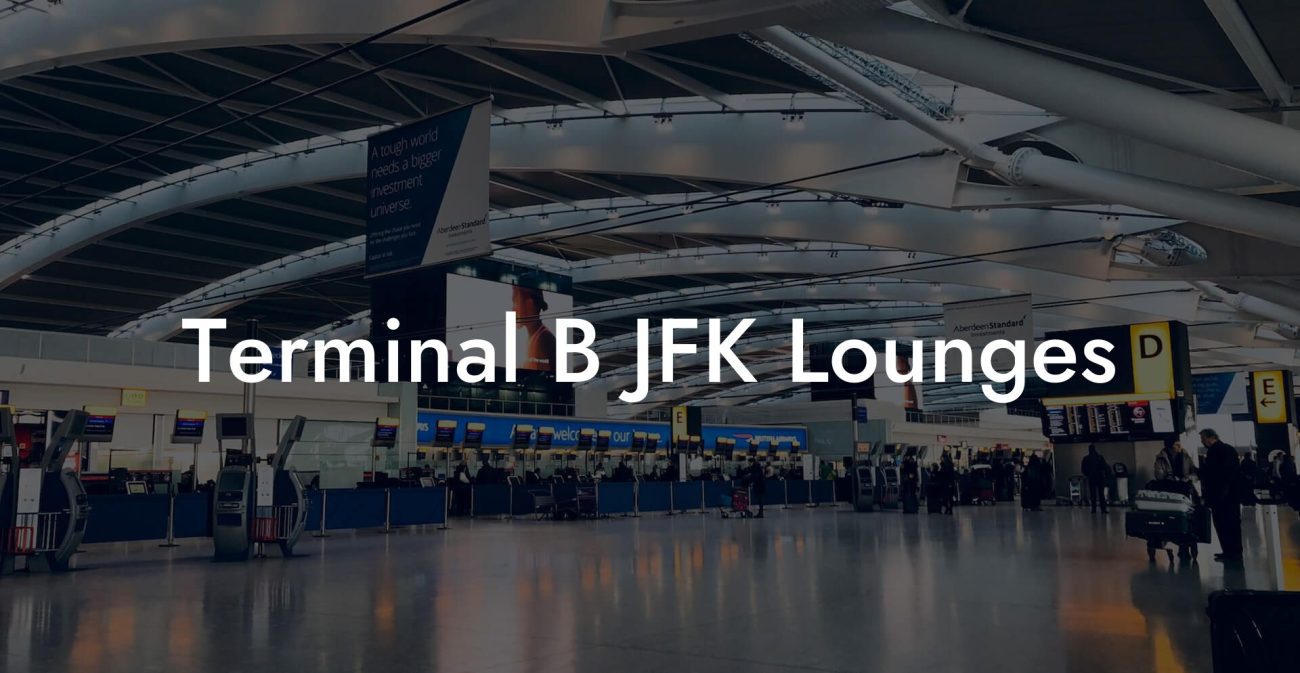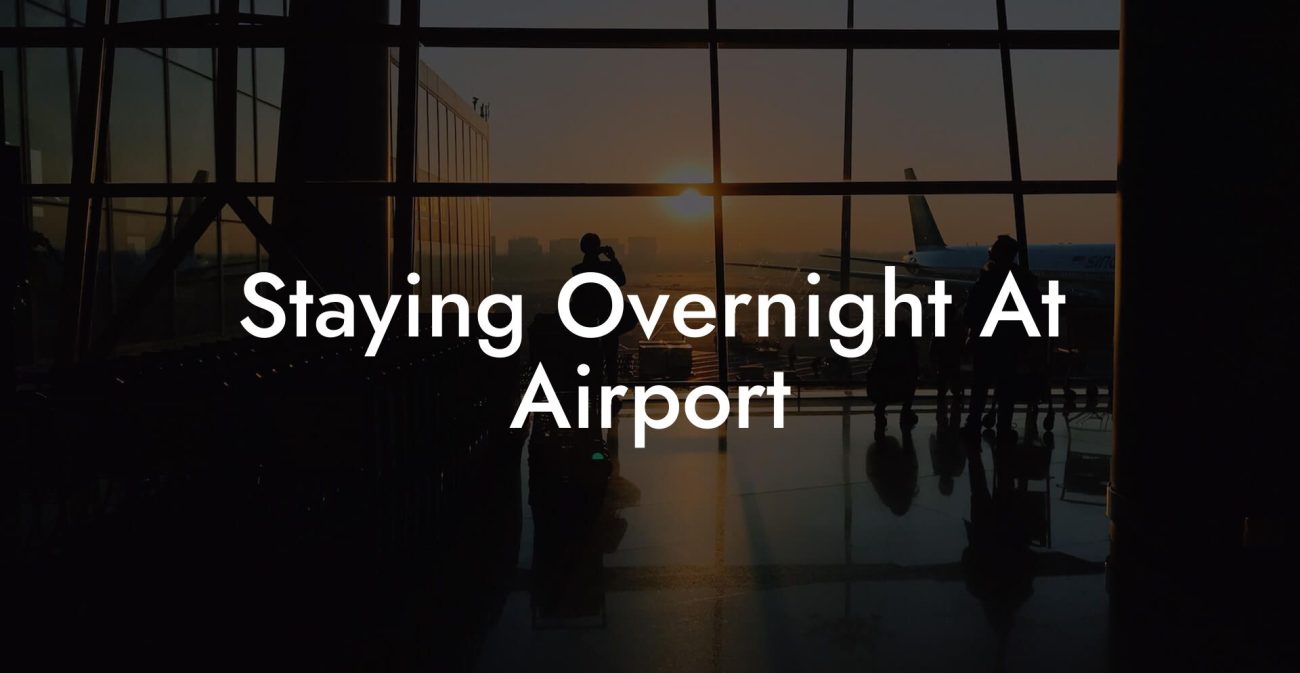Tired of endless scrolling for that elusive airport nap hack? Ever wondered if you have the freedom to catch some Z’s between flights, or if you’re secretly breaking a rule by snuggling into that oddly comfortable corner of the terminal? Get ready to dive deep into the wild and ever-evolving world of airport sleep! From the funky sleeping pods in futuristic airports to the time-tested art of napping in a terminal chair, we’re unraveling the mysteries of airport sleeping policies, providing Gen-Z and millennial travelers with the ultimate guide on how to sleep in airports—legally, safely, and with maximum style.
Quick Links to Useful Sections
- What Does It Really Mean to Sleep in an Airport?
- Why Do Travelers Choose Airport Sleep?
- Understanding Airport Sleeping Policies and Guidelines
- General Permissibility
- Designated Sleeping Zones
- Security and Safety Concerns
- Local Regulations and Cultural Norms
- Exploring the World of airport sleeping pods
- The Rise of Sleeping Pods
- How to Book and Utilize a Sleeping Pod
- Balancing Cost and Comfort
- Sleep Strategies: Tips and Tricks for Napping in Airports
- Scout Your Location
- Invest in the Right Gear
- Dress Comfortable, Pack Light
- Stay Alert to Your Surroundings
- Napping Techniques and Timing
- Common Misconceptions About Sleeping in Airports
- Myth: Sleeping in Airports Is Illegal
- Myth: You’ll Be Kicked Out or Banned
- Myth: It’s Uncomfortable and Unsafe
- Myth: You Can’s Reliably Sleep Through Flight Announcements
- Safety First: How to Secure Your Stuff and Your Snooze
- Keep Your Essentials Close
- Choose a Well-Lit Area
- Inform Someone of Your Whereabouts
- Use a Portable Alarm
- Top Airports Known for Their Great Sleeping Facilities
- Singapore Changi Airport
- Incheon International Airport, Seoul
- Doha Hamad International Airport
- Dubai International Airport
- Case Studies: Real Travelers, Real Airport Sleep Stories
- The Layover Legend
- The Budget-Savvy Explorer
- The First-Time Flyer’s Wake-Up Call
- Resources and Community Support: Your Next Steps
- Online Forums and Social Media Groups
- Travel Apps and Blogs
- Loyalty Programs and Airport Partnerships
- Workshops and Webinars
- tech and Gadgets: Enhancing Your Airport Sleep Experience
- Noise-Cancelling Headphones
- Portable Travel Pillows and Blankets
- Sleep Masks and Eye Shields
- Travel Apps for Meditation and Sleep
- Cultural Perspectives on Sleeping in Public Spaces
- East Asian Approach
- European Nuances
- Middle Eastern Innovations
- Planning Ahead: Airport Sleep Scheduling and Flight Coordination
- Check Flight Schedules and Delays
- Work with Buffer Time
- Combine Sleep With Productive Downtime
- Integrating Sleep Into Your Overall Travel Routine
- Stay Hydrated and Well-Nourished
- Regular Movement and Stretching
- Embrace Flexibility
- Airport Sleeping: The Road Ahead and Your Role in Shaping Its Future
- Frequently Asked Questions About Sleeping in Airports
- Your Next Step: Embrace the Art of Airport Sleeping
What Does It Really Mean to Sleep in an Airport?
Airport sleep isn’t just about stealthily dozing off when your flight’s delayed—it’s an experience, a rite of passage for many travelers worldwide. Whether you’re a frequent flyer dodging overpriced hotel stays or a digital nomad who treats the terminal as a second home, sleeping in airports has evolved into an art form. It involves scavenging for a comfy bench, packing the right travel pillow, and sometimes even booking yourself a cozy sleep pod at premium lounges.
Legally speaking, most airports don’t have a closed-door policy explicitly banning sleep. In fact, many airports understand that travelers might need a snooze. However, while you’re permitted to sleep in most public areas, there might be certain restrictions and guidelines in place depending on the country, terminal, or even the time of day. So, before you set up camp near Gate 22, let’s explore the ins and outs of these sleeping etiquette guidelines.
Why Do Travelers Choose Airport Sleep?
Let’s face it—travel can be a rollercoaster of stress, exhaustion, and last-minute cancellations. Travelers often resort to airport sleeping for a myriad of reasons, including:
- Flight Delays: When your flight is stuck in a 12-hour limbo, couch surfing in the departure lounge might be your only option.
- Budget Constraints: Why fork over cash for a hotel when you can catch up on sleep right at the airport?
- Layovers and Transits: Long layovers transform bustling terminals into temporary bedrooms, complete with ambient announcements and the occasional suitcase symphony.
- Adventure and Challenge: For many, sleeping in an airport is a badge of honor—a testament to survival, adaptability, and street smarts in the urban jungle of air travel.
No matter the motivation, the practice of airport sleep has sparked a cultural phenomenon where travelers share tips, hacks, and funny anecdotes about their adventures in terminal napping.
Understanding Airport Sleeping Policies and Guidelines
Before you turn that cozy corner into your makeshift bed, it’s crucial to understand the policies and guidelines that many airports enforce. Although rules differ from one airport to another, some common themes have emerged:
General Permissibility
Most airports allow passengers to remain in the terminal overnight, especially if you have a valid boarding pass. Security personnel typically exercise discretion, ensuring that people are not loitering suspiciously. However, be aware that in certain jurisdictions or during specific hours, some airports may actively discourage overnight stays.
Designated Sleeping Zones
Increasingly, airports are recognizing the need for relaxation and rest. Several international hubs now feature designated rest zones or sleeping pods specifically designed for transit passengers. These innovations often come with perks like charging stations, privacy screens, and even complimentary Wi-Fi. If you’re in luck, booking one of these sleeping pods might be your golden ticket to a restful night’s sleep.
Security and Safety Concerns
While sleeping in public areas might seem risky, most modern airports are well-guarded with 24/7 security and surveillance systems. That being said, it’s essential to keep your belongings close; a friendly oversight might translate to a lost wallet or unattended bag. Blend in with the crowd and avoid drawing undue attention to ensure a safe, low-key slumber.
Local Regulations and Cultural Norms
In some countries, cultural attitudes toward public sleeping differ greatly. While a quick nap might be seen as a practical necessity in one country, it might be frowned upon in another. Make sure to check out the local policies online or ask airport staff about any specific guidelines.
Exploring the World of airport sleeping pods
For urban adventurers looking to upgrade from the basic bench or hard floor, airport sleeping pods are a game-changing innovation. These futuristic sleep stations are often found in high-end international hubs and offer more than just a place to rest:
The Rise of Sleeping Pods
Sleeping pods have taken the airport experience to the next level. They are designed to provide travelers with a private, quiet space in the midst of a bustling terminal. With features like adjustable lighting, temperature control, and soundproofing, these pods create an oasis of calm perfect for recharging your batteries.
How to Book and Utilize a Sleeping Pod
Many airports now offer the option to pre-book sleeping pods through their official websites or via travel apps. Prices can vary depending on the airport, duration of the stay, and the level of luxury provided. Consider the following tips when booking:
- Book in Advance: Especially during peak travel times, these pods can fill up quickly.
- Check for Amenities: Look for features such as charging ports, adjustable beds, and privacy curtains.
- Read Reviews: Fellow travelers can offer valuable insights into the comfort and safety of these pods.
Balancing Cost and Comfort
While airport sleeping pods offer unparalleled comfort compared to traditional terminal seating, they’re not free. Evaluate how much you’re willing to spend vs. the potential benefits. For some, the extra expenditure is well worth a few hours of uninterrupted sleep before a long-haul flight.
Sleep Strategies: Tips and Tricks for Napping in Airports
Whether you’re conquering a layover or hoping to avoid a post-flight crash, mastering the art of airport sleep involves a few practical strategies:
Scout Your Location
Arrive early at the airport and scope out the best spots for napping. Look for areas that are less trafficked, away from high-declaration zones like security checkpoints and boarding gates. Quiet corners, comfy lounges, and even hidden alcoves behind duty-free counters may be your best allies.
Invest in the Right Gear
Bring along travel essentials designed to enhance your sleeping experience. An inflatable travel pillow, a lightweight blanket, and noise-cancelling headphones can transform a hard chair into your personal cocoon. Sunglasses and a sleep mask are also lifesavers for blocking out the harsh airport lighting.
Dress Comfortable, Pack Light
Opt for clothing that is both comfortable and versatile. Layer up so that you can adapt to fluctuating temperatures from chilly air conditioning to warmer lounge areas. A stylish yet practical travel outfit is a must-have for the savvy jet-setter.
Stay Alert to Your Surroundings
Even though you’re trying to catch a few winks, intermittent awareness can help ward off potential pickpockets and keep you informed of any sudden changes in flight status. Set periodic alarms on your phone, and always keep your essentials within arm’s reach.
Napping Techniques and Timing
Even the best sleep environment can only do so much—your body’s internal clock plays a huge role. Try to synchronize your sleep with the natural circadian rhythm, whether that means a short power nap or a longer rest period. Avoid deep sleep cycles if you only have a brief layover, as grogginess might defeat the purpose.
Experiment with different techniques, such as the 20-minute power nap, to see what leaves you feeling refreshed rather than disoriented. A well-timed nap can be the secret sauce that transforms a stressful travel day into a manageable experience.
Common Misconceptions About Sleeping in Airports
Despite its growing popularity, there are plenty of myths and misconceptions swirling around airport sleeping. Let’s bust some of the most common ones:
Myth: Sleeping in Airports Is Illegal
Fact: In most cases, airport sleep is completely legal as long as you’re in public, designated areas. While some airports discourage overnight stays for security and operational reasons, there is no blanket rule that forbids passengers from catching some shut-eye.
Myth: You’ll Be Kicked Out or Banned
Fact: Though security may ask you to move if you’re blocking passageways or causing a disturbance, most staff understand that a tired traveler just needs a moment of rest. Just be respectful and follow local guidelines.
Myth: It’s Uncomfortable and Unsafe
Fact: With modern amenities like sleeping pods, recliner chairs, and designated rest zones, many airports offer comfortable and secure options for napping. Plus, with vigilant security systems in place, your safety is rarely compromised.
Myth: You Can’s Reliably Sleep Through Flight Announcements
Fact: While it’s true that flight announcements might intermittently disrupt your slumber, many travelers find creative ways to cope—think earplug symphonies or strategically placed neck pillows that double as sleep aids!
By separating fact from fiction, you’ll be better prepared to embrace airport sleeping with confidence and a dash of humor.
Safety First: How to Secure Your Stuff and Your Snooze
A solid sleep strategy in an airport isn’t just about comfort—it’s about safety, both for you and your belongings. Here are some killer tips to ensure that your snooze session remains hassle-free:
Keep Your Essentials Close
Consider using a travel pouch or money belt to secure your passport, wallet, and phone. Park valuables in sight and set your alarm to remind you to check your surroundings periodically.
Choose a Well-Lit Area
Even if it means sacrificing a bit of peace, opt for areas that are well-lit and close to security cameras. It might not be the coziest corner, but peace of mind is priceless—especially when traveling solo.
Inform Someone of Your Whereabouts
Let a travel buddy or a family member know your location and estimated wake-up time. In case of any emergencies or sudden schedule changes, having someone aware of your whereabouts can be immensely reassuring.
Use a Portable Alarm
A portable alarm or even apps on your phone can prevent you from oversleeping through boarding announcements. Just a few well-timed beeps can be the difference between catching your flight and a prolonged airport stay.
Remember, a proactive approach to safety and security not only protects your possessions but keeps you in the loop when it’s time to roll.
Top Airports Known for Their Great Sleeping Facilities
Not all airports are created equal when it comes to providing a chill-out zone for weary travelers. Some global hubs have gained legendary status for offering exceptional facilities to help passengers rest:
Singapore Changi Airport
Renowned for its design-forward architecture and unbeatable amenities, Changi Airport in Singapore features a variety of sleeping options—from quiet lounges to dedicated nap rooms. With lush indoor gardens and waterfall views, catching some sleep here is almost like a mini-vacation.
Incheon International Airport, Seoul
Incheon’s sprawling terminal includes rest zones equipped with reclining chairs, sleeping pods, and even free showers. For many, it’s the perfect blend of modernity and comfort, making it an ideal destination for a quick recharge.
Doha Hamad International Airport
Doha’s Hamad International Airport offers luxurious lounges coupled with quiet sleeping areas, ensuring that even budget-conscious travelers can snag a quality nap between flights. Its ambient lighting and plush seating arrangements make it a top contender on the list.
Dubai International Airport
Dubai’s airport stands out for its futuristic vibe and a host of premium facilities. With specialized sleep pods, an array of lounges, and 24/7 services, it’s a playground for the weary traveler looking for a power nap in style.
Exploring these airports not only reveals the best venues to catch some Z’s but also inspires your next travel adventure. Whether you’re a seasoned globetrotter or embarking on your first overseas journey, these terminals are sure to impress.
Case Studies: Real Travelers, Real Airport Sleep Stories
Nothing illustrates the practicality of sleeping in airports quite like real-life tales from travelers who have mastered it. Check out these mini case studies that capture diverse experiences:
The Layover Legend
Emma, a digital nomad from Austin, found herself stranded at a European airport for 14 hours due to unexpected flight cancellations. With no budget left for a hotel, she discovered a quiet lounge near Gate 15 and used noise-cancelling earbuds paired with a travel pillow. Emma’s power nap not only recharged her energy but also gave her the confidence to face the rest of her journey with a smile.
The Budget-Savvy Explorer
Carlos, a backpacker with a penchant for adventure, often faced long layovers in various Asian airports. Instead of splurging on accommodations, he perfected the art of airport sleep by blending into the crowd, scouting off-the-beaten-path resting spots, and even balancing his essentials in a secure travel bag. His ingenuity allowed him to transform challenging journeys into opportunities for quiet reflection and rejuvenation.
The First-Time Flyer’s Wake-Up Call
Zoe, a recent college grad experiencing her first international trip, was wary of the idea of sleeping in an airport. However, a 10-hour red-eye taught her the crash course that even if you’re uncertain, a few well-planned strategies—like finding a safe sleeping nook and setting multiple alarms—can make for an unexpectedly refreshing experience.
These stories aren’t just quirky anecdotes; they underscore practical lessons and real strategies that you can tailor to your own travel style.
Resources and Community Support: Your Next Steps
Embarking on the journey of airport sleep can feel daunting, but you’re not alone. Countless travel communities, forums, and social platforms offer a treasure trove of tips, hacks, and live updates on the best spots to catch a nap. Here’s how to connect and empower your next airport adventure:
Online Forums and Social Media Groups
Platforms like Reddit (think r/TravelHacks and r/onebag) and Facebook groups dedicated to frequent flyers are hotbeds for live discussions and insider advice on airport sleeping locations, local tips, and real-time updates on airport policies.
Travel Apps and Blogs
Download apps designed for globetrotters that provide real-time airport maps, sleeping zone locators, and even reviews on sleep pods. Influential travel blogs can also offer personal insights and destination-specific tips to refine your snoozing strategy.
Loyalty Programs and Airport Partnerships
Consider joining frequent flyer programs that offer perks like lounge access or special rates on sleep pods. Airports are increasingly partnering with travel brands to provide exclusive deals that cater to the modern nomad’s needs.
Workshops and Webinars
Look out for webinars and online workshops focusing on travel hacks where seasoned experts share their secrets on optimizing layover experiences, including how best to prepare for and enjoy a restful airport sleep.
Integrating these resources into your travel routine will not only elevate your airport sleeping experience but also connect you with a broader community of like-minded globe trotters who share your passion for adventure and innovation.
tech and Gadgets: Enhancing Your Airport Sleep Experience
In today’s high-tech world, a suite of gadgets and innovations are waiting to upgrade your airport sleep routine from basic to brilliant. Here’s a roundup of tech gear that can transform even the busiest terminal into a sleep-friendly zone:
Noise-Cancelling Headphones
Arguably the MVP of travel accessories, high-quality noise-cancelling headphones can drown out the ambient chatter, intercom announcements, and other terminal noise that could otherwise disrupt your sleep cycle.
Portable Travel Pillows and Blankets
Invest in compact, inflatable travel pillows and ultra-lightweight blankets that pack down small but expand into a haven of comfort. These items are game-changers when it comes to airport naps.
Sleep Masks and Eye Shields
Blocking out harsh airport lighting is essential for effective rest. A contoured sleep mask that fits comfortably can help signal to your brain that it’s time to shut down and recharge.
Travel Apps for Meditation and Sleep
Leverage technology even further with apps that offer guided meditation sessions, ambient soundscapes, and sleep timers. Whether you’re trying to lull yourself to sleep or simply relax, these digital tools can be invaluable.
By embracing these technological aids, you’ll create a custom sleep environment that turns even the loudest terminal into a sanctuary of calm.
Cultural Perspectives on Sleeping in Public Spaces
The notion of sleeping in public isn’t uniform around the globe. In some cultures, it’s seen as a clever survival tactic, while in others, it might attract a raised eyebrow or two. It’s always enlightening to understand these diverse cultural perspectives and mix a bit of global savvy into your travel strategy.
East Asian Approach
In countries like Japan and South Korea, public sleeping (known as “inemuri” in Japan) is often embraced as a symbol of dedication and hard work—a short nap viewed as a quick recharge rather than laziness. Travelers in these regions tend to be respectful of the local customs, knowing that a discreet snooze is acceptable, especially in business districts or transit areas.
European Nuances
In various European metropolises, sleeping in public can be a gray area. While many travelers have successfully mastered the art of blending in with fellow nappers, it’s wise to stay informed about local attitudes and possible regulations in historic or busy city centers.
Middle Eastern Innovations
Airports in the Middle East are often a blend of luxury and innovation. With high-end lounges and designated sleep zones, travelers here are encouraged to take a moment to relax and recharge in an environment that marries tradition with modernity.
Understanding these cultural differences not only enriches your travel experiences but also equips you with the knowledge to adapt your airport sleep strategy to any global setting.
Planning Ahead: Airport Sleep Scheduling and Flight Coordination
A critical aspect of airport sleep is planning your journey well in advance. Timing is everything—coordinating your sleep schedule with flight departures, layovers, and arrival times ensures you maximize rest while minimizing stress.
Check Flight Schedules and Delays
Before you settle in for a long nap, keep a close eye on your flight updates. Sign up for airline notifications and leverage real-time flight tracking apps. Being informed can help you adjust your sleeping strategy in response to unexpected changes.
Work with Buffer Time
Aim to have a generous buffer between your sleep period and boarding time. This extra cushion allows you to wake gradually and navigate through security and boarding zones without feeling rushed.
Combine Sleep With Productive Downtime
Why not kill two birds with one stone? Some travelers combine light sleep with productivity hacks—think meditative moments, catching up on reading, or setting travel goals for the next leg of your journey. This multi-tasking approach turns downtime into an opportunity for rejuvenation and inspiration.
Proper planning transforms potential travel chaos into a seamless blend of rest and productivity, allowing you to arrive at your destination refreshed and ready to explore.
Integrating Sleep Into Your Overall Travel Routine
Finally, sleeping in airports shouldn’t be an isolated strategy—it should harmonize with your overall travel routine. Maintaining a healthy balance of rest, nutrition, hydration, and activity sets the stage for an enjoyable trip, regardless of how many airports you must call home for a few hours.
Stay Hydrated and Well-Nourished
Dining options at airports may vary in quality, so plan ahead by packing healthy snacks and staying hydrated. A well-fed body fuels a good night’s sleep, even in the midst of bustling terminals.
Regular Movement and Stretching
Long periods of sitting can lead to stiffness and discomfort. Make it a habit to stroll around the terminal or perform simple stretches between sleep sessions to keep your blood flowing and your body energized.
Embrace Flexibility
Travel often involves unexpected twists and turns, so being adaptable is key. Whether you’re switching from a planned power nap to a spontaneous lounge retreat, flexibility is your secret weapon.
By integrating smart sleep habits into the overall travel plan, you set yourself up for a journey that embraces rest as much as exploration, ensuring that every leg of your trip is met with renewed energy and enthusiasm.
Airport Sleeping: The Road Ahead and Your Role in Shaping Its Future
As the travel industry evolves, so too does the concept of airport rest. Airlines and airports worldwide are increasingly recognizing the need for comfort and wellness, responding by introducing innovative sleeping solutions—from high-tech sleeping pods to dedicated quiet areas that cater specifically to transit passengers.
Your feedback and shared experiences contribute to this ongoing transformation. By exploring, experimenting, and sharing the highs and lows of your airport sleep journeys, you help drive positive change in airport design and policy. So, don’t hesitate to leave a review on that sleek new sleep pod or drop a comment in a travel forum—you might just inspire the next wave of airport innovations!
Whether it’s influencing better security protocols, advocating for more comfortable seating options, or simply proving that travel sleep can be both safe and delightful, your role as a traveler is powerful. Embrace the opportunity to shape a future where every airport is a haven for the weary and a launchpad for adventure.
Frequently Asked Questions About Sleeping in Airports
We’ve compiled a list of common questions and answers to help clear up any uncertainties about sleeping in airports. Dive in to get all the details you need.
1. Is it legal to sleep in airports?
In most cases, yes—it’s legal to catch some shut-eye in airport terminals as long as you remain in public areas and aren’t obstructing traffic or violating any specific rules set by the airport authorities.
2. Will airport staff ask me to leave if I’m sleeping?
Not typically. As long as you’re blending into designated areas and not causing any disturbances, most airport staff understand that travelers sometimes need rest. Just be proactive and follow any posted guidelines.
3. How do sleeping pods work?
Sleeping pods are private, secure spaces offered in select airports. They come equipped with amenities like charging ports, adjustable lighting, and sometimes even climate control. You can usually book these pods by paying a fee either through the airport’s app or at a dedicated kiosk.
4. What are some key tips to stay safe while sleeping in an airport?
Keep your personal belongings close, choose well-lit and secure locations, use travel locks or pouches for valuables, and remain alert to your surroundings. It’s also helpful to communicate your location to a friend or family member.
5. Are there any airports known for being particularly sleep-friendly?
Yes, airports like Singapore Changi, Incheon International, Doha Hamad, and Dubai International are renowned for their sleep-friendly facilities, complete with dedicated sleeping zones and modern amenities.
6. How can I adapt my sleep schedule around flight delays or long layovers?
It’s a balancing act—monitor flight updates closely, set multiple alarms to avoid oversleeping, and consider short power naps if you’re pressed for time. Always aim to have a buffer period before your boarding time.
7. Do I need to bring special gear if I plan to sleep in an airport?
While you can get by with just the basics, investing in a travel pillow, a lightweight blanket, noise-cancelling headphones, and a sleep mask can significantly improve your comfort and sleep quality.
8. What should I do if my flight gets delayed while I’m asleep?
Stay updated by keeping your phone nearby with flight tracking apps enabled. If you hear announcements, set a backup alarm to wake you in time. It’s all about balancing rest with vigilance.
9. How do cultural attitudes influence airport sleeping?
Cultural norms can vary—some regions view public napping as practical and even commendable, while others may have more conservative views. It’s always good practice to be aware of local customs and adjust your approach accordingly.
Your Next Step: Embrace the Art of Airport Sleeping
The modern travel landscape is evolving—and with it, the concept of where and how we sleep is transforming. Whether you’re a seasoned traveler or stepping into the world of long-haul flights for the first time, the art of airport sleeping is all about flexibility, awareness, and preparedness.
Picture yourself reclining in a futuristic sleeping pod or conquering the art of the power nap in a quiet corner of your terminal. Each experience is a stepping stone towards not just surviving, but thriving in the fast-paced world of air travel.
Your passport isn’t just a travel document—it’s a key to endless adventures, where every layover becomes a chance to explore new conveniences, discover hidden sleeping spots, and even connect with fellow travelers who share your passion for smart, sustainable travel. Embrace the journey, share your own airport sleep hacks in online communities, and remember—sometimes, the best part of travel is the unexpected rest along the way.
So next time your flight gets delayed or your layover stretches longer than anticipated, dive into this guide, pick up a few well-tested tips, and reclaim your right to rest in the most unexpected of places. The art of airport sleeping is waiting for you—comfortable, legal, and utterly in tune with the spirit of modern travel.
Welcome to a world where every terminal corner can be a potential haven of rest—where every airport is more than just a passage between destinations, but a space for rejuvenation, resourcefulness, and adventure. Your next great airport sleep experience starts now!
Useful Interruption: Dive deeper into the world of airport sleeping guides with our most popular sections. If there is anything you think is missing or anything you would love for us to write about, just give us a shout.
- General Airport Sleeping Guides
- Travel Gear & Equipment Recommendations
- Regional and Airport-Specific Guides
- Airport Sleeping Pods & Reviews
- Health, Safety, and Comfort Tips for Airport Sleepers
Last week, I decided to try the world-famous "airport sleepover" experience. Imagine this: I'm lying on a bench in Terminal C, surrounded by suitcases that have seen more of the world than I ever will, and a PA system that sounds like a karaoke machine on a sugar rush. I pull out my travel pillow—which, by the way, is more like a sad deflated balloon—and declare, "Tonight, I’m the king of this terminal!"
Soon enough, fellow travelers become my unexpected audience. One guy, fresh off a red-eye, whispers, "Hey, do you think if we sleep long enough, we can catch our flight in our dreams?" I reply, "Sure, and maybe I'll even get an upgrade to first-class in my nap!" The airport lights flicker like a disco ball, and every time someone announces a delayed departure, it’s like a punchline to our impromptu stand-up routine.
As I finally drift off, I dream of a world where boarding passes are like VIP tickets to the best sleepover party ever—a party where the only baggage is the laughter you carry with you. Waking up, I realize the airport is still the same, but I now hold the honorary title of "Terminal Comedian," a title I wear with as much pride as my permanently mismatched socks!

